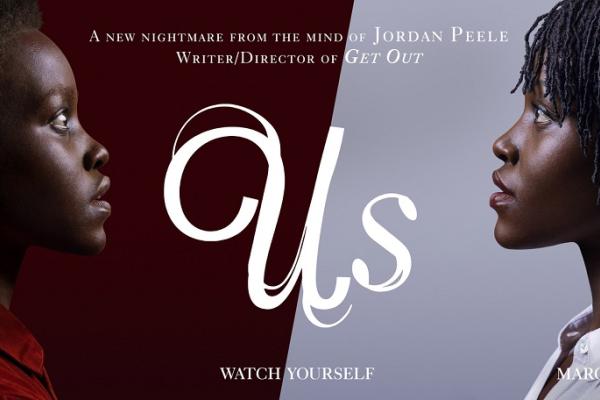Get scared with these Halloween movie picks

Draw the curtains. Dim the lights. Secure the popcorn. And get ready to be scared.
We checked in with some Arts and Sciences experts to hand-pick some choice horror movies for your Halloween viewing pleasure. From underseen cult favorites to contemporary classics to a much-discussed remake of a landmark slasher film, the picks will keep you well-stocked in shock this Halloween season.
Roger Beebe
Beebe, a professor in the Department of Art and core faculty member in Film Studies, is an award-winning filmmaker and has screened his films around the globe with recent solo shows at the Laboratorio Arte Alameda (Mexico City), the School of the Art Institute of Chicago, Anthology Film Archives and dozens of other venues. Beebe notes, “When I owned a video store, there were a few films that I routinely recommended as overlooked gems that I’d stumbled upon myself at one time or another.”
"Blue Sunshine" (directed by Jeff Lieberman, 1978)
"Blue Sunshine" exists at the blurry border between horror and science fiction. I stumbled across it on a used VHS tape that I picked up for a buck, knowing nothing beyond the striking cover of the tape. The start of the film is totally shocking — you really don’t start to understand the plot until maybe 15 minutes in. I don’t want to say too much because the power of the film relies on walking in blind, so people just need to take the leap of faith on this one.
"Seconds" (directed by John Frankenheimer, 1966)
For a stretch in the ’60s, there was no director better than Frankenheimer — he directed "The Manchurian Candidate," "Seven Days in May" and "The Train" in the lead up to "Seconds" — and this may be my favorite in that stretch. It was shot largely with very wide-angle lenses by James Wong Howe, the legendary Chinese American cinematographer, who’d been making films since the silent era, and the film looks like nothing else. It also stars Rock Hudson, who really gets to a dark (and sweaty!) place that feels like the opposite end of the filmmaking universe from his pairings with Doris Day.
Lauren De Camilla
De Camilla is is a PhD candidate in the Department of French and Italian specializing in horror cinema, popular Italian cinema, genre theory, gender and sexuality studies and feminist cultural theory. She is currently writing a dissertation entitled, “Female Leads: Negotiating Minority Identities in Contemporary Italian Horror Cinema." On Monday, Oct. 21, she joins Arts and Sciences colleagues Linda Mizejewski and Aviva Neff for “The New Horror" a free panel discussion at Gateway Film Center about the films selected below.
"The Babadook" (directed by Jennifer Kent, 2014)
"The Babadook" has received global acclaim in part for its female director, Jennifer Kant. As the horror genre has largely been dominated by male auteurs, it is exciting to see women directing and producing horror/thriller films today. "The Babadook" also treats anxieties about having children in the contemporary space and speaks to broader global sentiments about motherhood and identity.
"Suspiria" (directed by Luca Guadagino, 2018)
A remake of a famous Italian 1977 slasher by horror auteur Dario Argento. The remake depicts representations of Jewish identity in a post-Holocaust Germany and features a protagonist with an Ohio Mennonite family. While Guadagnino received critical attention for his 2017 coming-of-age film, "Call Me By Your Name," he told "The Hollywood Reporter" in 2017 that the most transgressive work in cinema right now is being done in horror.
"Us" (directed by Jordan Peele, 2019)
"Us" is Jordan Peele’s sophomore horror film — his first film, "Get Out," debuted in 2017. Effectively addressing issues of racism through horror, "Us" made box office history when it domestically earned an estimated $70.3 million in its opening weekend, garnering the third-biggest horror opening ever. Peele began to receive academic attention by scholars such as Robin Means Coleman, who declares “black is back” in her recent piece, “We’re in a golden age of black horror films,” and suggests that Peele’s films participate in a revived genre phenomenon featuring black protagonists.
